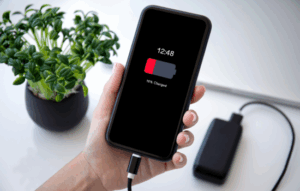Advertisements
Amateur radio is an age-old passion that has united people from all over the world through the power of electromagnetic wave communication.
Since their beginnings, amateur radio operators have used ingenious equipment to transmit messages, share knowledge, and respond to emergencies, becoming a true bridge between cultures and generations.
Advertisements
With the evolution of technology, today we can bring the spirit of the amateur radio operator to the palm of our hands through mobile applications.
Amateur radio apps allow enthusiasts and newcomers alike to access frequencies, coordinate transmissions, and experiment with digital communication in a practical and accessible way. In this article, we'll explore in-depth what an amateur radio app is, its benefits, the features it offers, and the most recommended apps for getting started and perfecting your skills in this field. We'll also share practical tips for getting the most out of these tools, while keeping in mind key ethical and privacy considerations.
The history and relevance of amateur radio
Origins of amateur radio
Amateur radio emerged shortly after the discovery of electromagnetic waves in the late 19th century. Pioneers such as Guglielmo Marconi and Nikola Tesla paved the way for the development of telegraphy and, later, radio communication. Over time, amateur radio operators became enthusiasts who, without commercial motives, dedicated themselves to experimenting and establishing long-distance contacts. Their work was vital in emergencies, enabling communication when other means failed.
Amateur radio in the digital age
With the digital revolution, the world of amateur radio has undergone significant changes. Access to information and the ability to share experiences with other amateurs has become democratized thanks to the internet and mobile devices. Radio no longer requires bulky and expensive equipment: today you can transform your smartphone into a powerful tool for tuning frequencies, broadcasting, and connecting with a global community of amateur radio users.
Advertisements
The ability to monitor and manage broadcasts in real time, combined with the integration of databases and analysis tools, has ushered amateur radio into a new era where knowledge and experimentation are accessible to everyone.
What is an amateur radio app?
An amateur radio app is a digital tool designed to facilitate radio communication using mobile devices. These apps allow radio amateurs to:
- Tune to assigned frequencies and access specific bands.
- Transmit and receive messages in real time.
- Perform automatic scans of active frequencies.
- Adjust sound parameters, filter out interference, and improve signal quality.
- Integrate data and statistics on radio use, facilitating the analysis of wave propagation.
Using advanced algorithms and features native to the digital environment, these applications provide an experience similar to that of an amateur radio console, but with the portability and accessibility offered by a smartphone.
Benefits of using amateur radio applications
Amateur radio apps offer multiple benefits, both for learning this exciting discipline and for improving communication in emergency situations and connecting with a global community. The main benefits include:
1. Accessibility and Portability
The main benefit of an amateur radio app is the ability to take the amateur radio experience with you anywhere. With your cell phone, you can access frequency bands, manage transmissions, and communicate without the need for bulky equipment. This allows you to participate in amateur radio while on the go, whether on an outdoor outing or while traveling.
2. Ease of Use
Most of these apps are designed to be intuitive, allowing both beginners and advanced users to use their features without complications. Modern graphical interfaces make it easy to navigate, adjust frequencies, and apply audio effects, quickly bringing you closer to a professional experience.
3. Interactive and Personalized Learning
Many apps offer built-in educational resources, such as video tutorials, interactive guides, and simulators, that help you understand how the radio works. These tools allow you to practice and hone your skills in a controlled environment, receiving real-time feedback that accelerates learning.
4. Connection with the Global Community
Being an amateur radio operator isn't just about technology; it's also about making connections. Applications often include chat features, forums, and contact lists, allowing you to exchange information, participate in contests, and communicate with radio amateurs from different countries. This global network enriches your experience and opens up new opportunities for collaboration.
5. Signal Control and Optimization
Using built-in tools, these apps allow you to automatically scan active frequencies, adjust volume, and apply filters that reduce interference. These features are essential for improving audio quality and ensuring effective communication, especially in emergency situations or in environments with high interference.





One Response